BlockFi vs Coinbase: Where Does BlockFi Beat Coinbase? [2025]
BlockFi vs Coinbase, which is really more powerful? Let’s get to know these two platforms and assess which is best for you. Founded by Flori Marquez and Zac Prince in 2017, BlockFi’s mission is to bring financial services to people and markets that tend to be sidelined by traditional banks. Coinbase, on the other hand, focuses on powering the cryptocurrency trading ecosystem. What do these two companies have in common, and what sets them apart? In this BlockFi vs Coinbase comparison, we look at the similarities and differences between these platforms and discuss whether there’s a clear overall winner.
BlockFi Referral Offering
If you want to sign-up and get $40 in BTC but you don’t have a referral code yet, enter this BlockFi referral code: 1413a51f or use this BlockFi referral link. This referral bonus is $30 higher than the usual $10 BlockFi referral bonus because the code is linked to a BlockFi Rewards Credit Card. Follow the guidelines from this BlockFi Referral article to make sure you get your BlockFi referral bonus successfully.
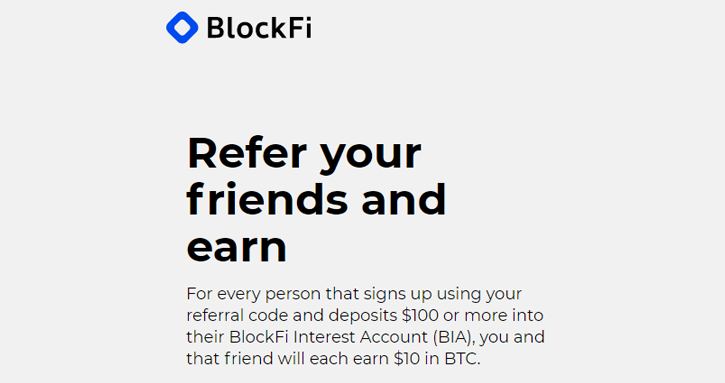
BlockFi offers two distinct referral options to cater to a wide range of user needs.
Invite-A-Friend – This is an ordinary referral program in which existing users earn rewards for inviting others to join the platform.
This BlockFi referral program uses special codes. When your friends use your unique code to sign up, you’ll be rewarded for successfully inviting them to join the platform. For your first five referrals, you equally share $20 with the person you refer. After your first five, you earn $20, and the new user gets $10.
Partner program – The BlockFi partner referral program differs from the Invite-A-Friend program, taking it a notch higher. Instead of just using a code and earning between $10 and $20 in referral incentives, it allows participants to gain 0.5 percent of the deposits made by their referrals.
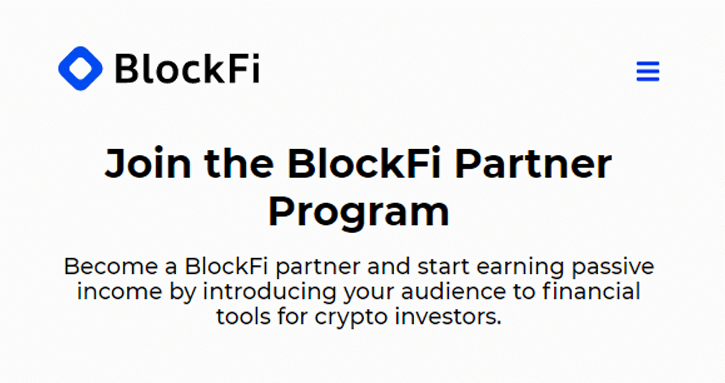
Also, the platform supports participants by providing high-quality promotional materials for them to use on their websites or on social media, among other places. The materials help market the platform to prospective users.
If you need more information about BlockFi’s referral programs, you may click here to discover BlockFi’s three types of referral and bonus offerings.
BlockFi Products
The BlockFi Interest Account is a popular choice for users. It allows you to receive interest on deposited funds. The incentives you earn depend on the amount and type of cryptocurrency you deposit. Another top product is the BlockFi trading account. This turns BlockFi into a typical cryptocurrency trading platform that enables buying and selling of virtual currencies.
The third and equally prominent BlockFi product is crypto-backed loans. This product gives you the freedom to take out a USD-based loan by providing virtual currencies held in your wallet as collateral.
Another product BlockFi offers is the Bitcoin rewards credit card that facilitates card-based purchases across the globe. The card, dubbed the BlockFi Bitcoin Rewards Credit Card, gives users 1.5 percent of every transaction back in BTC as a reward.
All the previously mentioned products target retail users. Luckily, BlockFi has other products for institutional clients. One such Corporate product is BlockFi Global Digital Markets. This product encourages institutional users to borrow virtual assets or access USD-based loans to facilitate activities like market-making, hedging, and any other working capital needs. Notably, BlockFi provides negotiated term https://blockfi.com/financing-solutions/s tailored to client’s needs.
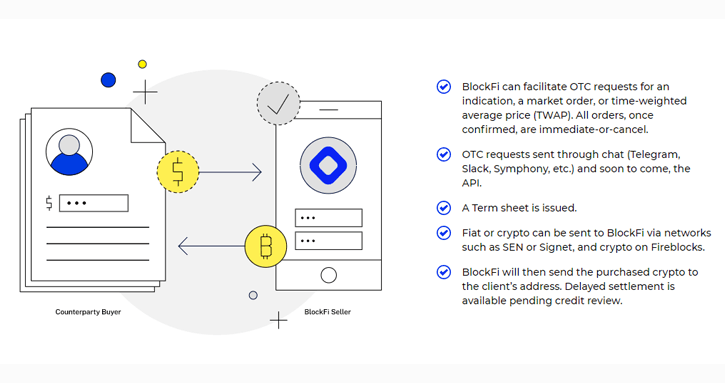
The BlockFi OTC desk is another corporate-focused product. It helps bridge the gap between institutions migrating from the conventional finance arena to the cryptocurrency space. The OTC desk supports leading cryptocurrencies with sizeable market capitalizations such as Bitcoin, Ethereum, and Litecoin.
BlockFi Investors
BlockFi is backed by leading investment firms. They include Akuna Capital, Arrington XRP Capital, Avon Ventures, Castle Island Ventures, Coinbase Ventures, and ConsenSys.
Coinbase Referral programs
Coinbase referral program – Coinbase’s referral program incentivizes users to invite their friends to join the platform. Get $10 worth of Bitcoin for signing up with a Coinbase Referral link, and buy or sell at least $100 worth of cryptocurrency within 180 days to receive the Coinbase referral bonus.
If you have already registered to Coinbase and you plan to take part in the Coinbase referral program, share your Coinbase referral link with your friends. The invitee has to register using your unique link. The new user must not be an existing or former Coinbase user, and their first trade must involve at least 100 USD.
A user can fulfill this requirement by initiating different trades. The reward for referrals is $10 for both parties. The referee must complete a qualifying buy or sell order within six months after they register for an account.
Get more info about the Coinbase referral program in this article.
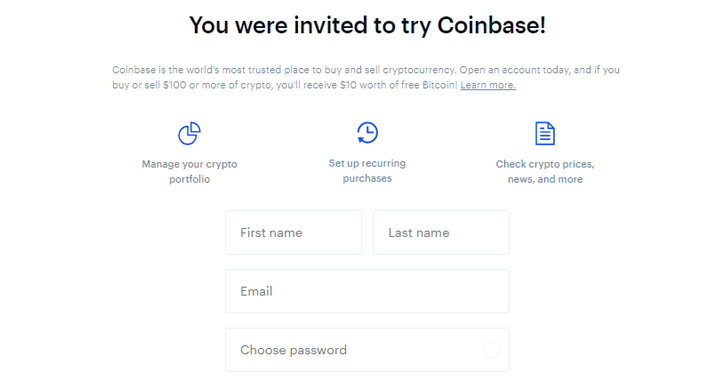
Coinbase affiliate offering – This is a more advanced referral program. The platform uses affiliate marketing to partner with users interested in introducing “the world to Bitcoin, cryptocurrency, and the new financial system.”

Unlike the standard referral program, participants must apply and receive approval to join the affiliate program. Affiliates promote the exchange through articles, ads, or some other method. If you successfully refer users through the affiliate program, you’ll earn 50 percent of your invitees’ trading fee for the first 90 days.
Coinbase Products
Coinbase’s main business is a cryptocurrency exchange. Over time, it has become a reputable and leading outlet to buy and sell cryptos both in the United States and in over 100 countries across the globe. Its more than 56 million verified users are proof of its popularity and reliability.
Coinbase keeps adding more options for cryptocurrency users as the market grows. It has an education-based offering that pays users to learn about cryptocurrency. The educational platform concentrates on educating interested parties about how specific virtual currencies work. In return, learners “get a bit of each crypto to try out” for themselves.
Additionally, Coinbase has a Visa debit card that allows the platform’s users to use cryptocurrencies to pay for purchases or withdraw funds from ATMs worldwide. Your Coinbase account balance powers the card.
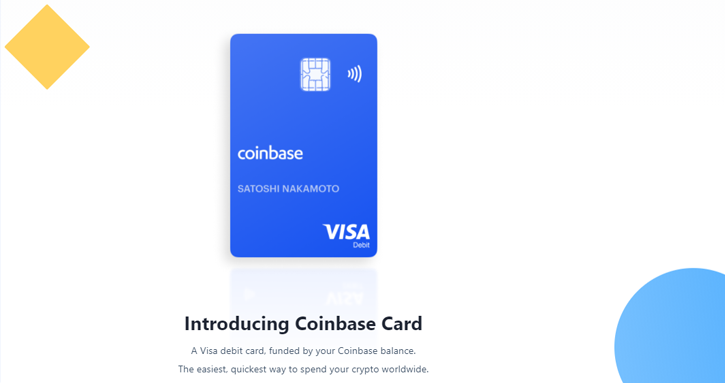
There’s More
Another product Coinbase offers is the Coinbase Wallet. The wallet is an independent offering that does more than just securely store your cryptocurrencies. For example, it enables the transfer of funds between users and allows for interactions with decentralized applications (Dapps).
Like BlockFi, Coinbase has products that are specifically for corporate users. Among them is the prime broker which caters to fintechs, brokerages, and crypto trading platforms looking to offer virtual currencies to their clients. The product uses a stress-tested hardware wallet and provides an array of execution options.
Coinbase has a borrowing product that dispenses Bitcoin-backed loans at an APR of 8 percent. This option ensures the platform’s users remain BTC holders instead of liquidating their holdings, especially when they need quick cash. When you don’t sell your virtual holdings, you don’t have to pay taxable gains and losses. Unfortunately, the product is only currently available in 15 US states.
Other products include Coinbase commerce which allows merchants to accept cryptocurrencies as a payment method; institutional cryptocurrency custody for corporate crypto storage; and asset hub where token developers issue, list, and launch their tokens on the platform.
Coinbase provides rewards on deposits through its staking program. This encourages users to stake their coins on proof of stake (PoS)-based platforms such as Tezos and Cosmos. In return, you earn rewards in the platforms’ native assets. Staking with Coinbase provides a maximum annual percentage yield of 6.0 percent.
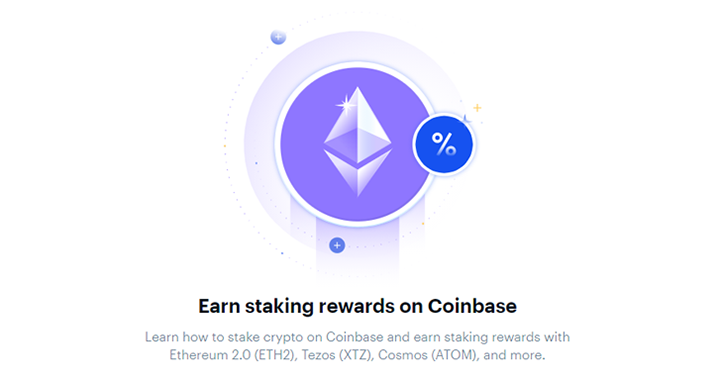
Coinbase Investors
Investors who participated in Coinbase’s Series A funding include Union Square Ventures. Other firms like Andreessen Horowitz, Ribbit Capital, the New York Stock Exchange, and Draper Fisher Jurvetson participated in raising capital for the advance of the trading avenue.
In 2021, the crypto exchange went public and was listed on the Nasdaq stock exchange. This move opened the platform for public investments. It was the first crypto exchange in the US to attain public status.
BlockFi vs Coinbase: Do We Have a Winner?
Which of these platforms is better? It depends on what you’re looking for. For example, if you’re into cryptocurrency trading, Coinbase provides the best services owing to its long list of supported virtual assets.
Also, Coinbase offers a broader range of products compared to BlockFi. This includes learning resources, an independent cryptocurrency wallet, and an ecommerce solution for merchants seeking to expand their payment options to include virtual currencies.
If you’re looking to earn by referring friends or becoming an affiliate, BlockFi is an attractive choice. It offers a higher referral bonus after the first five invitees, while Coinbase offers a flat reward of $10. Additionally, BlockFi’s affiliate rewards don’t have a time limit like Coinbase’s rewards program does.
For rewards on deposits, BlockFi leads. Deposits on BlockFi automatically earn interest, while on Coinbase, you must explicitly join the staking program. BlockFi generates interest on deposits by using deposited funds to offer crypto-backed loans. The type of coin deposited determines the interest rate.
Coinbase crypto-backed loans have a higher annual percentage rate of 8 percent compared to BlockFi’s, which can be as low as 4.5 percent. BlockFi supports a wider range of cryptos as collateral compared to Coinbase’s Bitcoin-only policy. Blockfi beats Coinbase on loan-to-value ratio, which goes up to 50 percent as opposed to 30 percent. Furthermore, BlockFi sets the maximum loan amount at 100,000 USD.
Conclusion
Our BlockFi vs Coinbase overview determines that BlockFi wins when it comes to products such as referral rewards, interest on deposits, and crypto-backed loans. However, Coinbase wins on its wide variety of products and its many different coin offerings.
Your choice of platform will depend on your individual goals.
